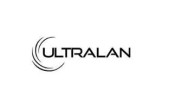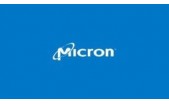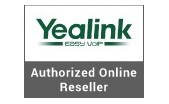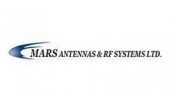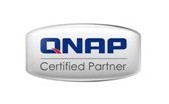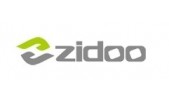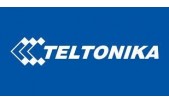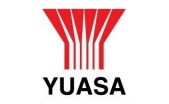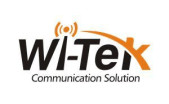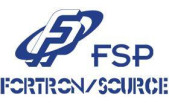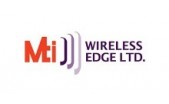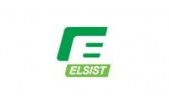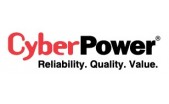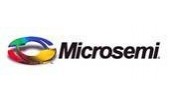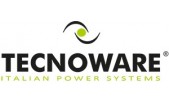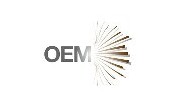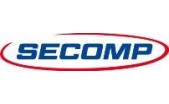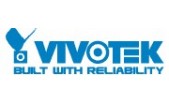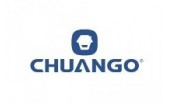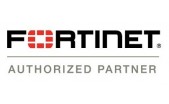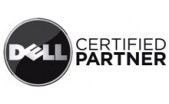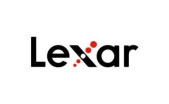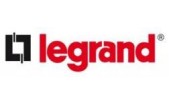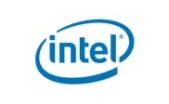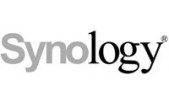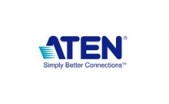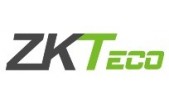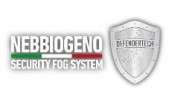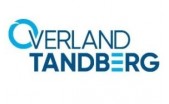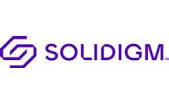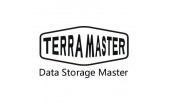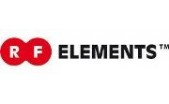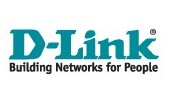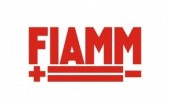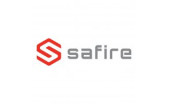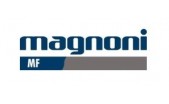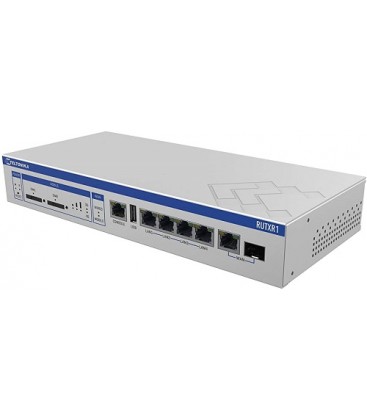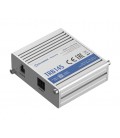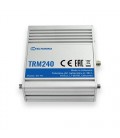Teltonika RUTXR1 4G/LTE Cat.6 Dual SIM Wave-2 802.11ac WLAN IoT Router Industriale
12 Months
Teltonika RUTXR1 - Enterprise Rack-Mount SFP/LTE router
RUTXR1 è un router LTE Cat6 montato su rack con alimentatori ridondanti e interfacce WAN che possono essere comodamente alloggiati in un armadio per server. E' dotato di dual SIM, USB e Wave-2 802.11ac dual band Wi-Fi.
Tuttavia, ciò che distingue questo prodotto dagli altri prodotti Teltonika Networks sono il WAN SFP e le porte console dedicate.
Le caratteristiche uniche di questo prodotto consentono l'utilizzo come prodotto primario in un ufficio domestico o di piccole dimensioni con funzioni di backup LTE, WLAN potente e senza ulteriori convertitori SFP-Ethernet.
Caratteristiche
- 4G (LTE) – Cat 6 DL up to 300 Mbps, UL up to 50Mbps; DC-HSDPA; HSUPA; WCDMA
- 5 x 1 Gbit Ethernet ports: 1 x WAN (configurable as LAN), 4 x LAN
- Dual-Band 802.11ac Wave 2 (WiFi 5) with MU-MIMO support and data transmission rates up to 867 Mbps.
- 2 x external SIM holders
- RS-232 (RJ45) console port for router configuration and debuging
- Load Balancing, Network Backup, Auto Failover
Contenuto Confezione
- RUTXR1
- 18W PSU
- 2 x LTE antennas (magnetic mount, SMA male, 3 m cable)
- 2 x WiFi antennas (magnetic mount, RP-SMA male, 1.5 m cable)
- Rack - mounting kit
- 4 x Standing pads
- 8 x Screws
- SIM Adapter kit
- Ethernet cable (1.5 m)
- QSG (Quick Start Guide)
- RMS Flyer
- Packaging box
Specifications
MOBILE
Mobile module: 4G (LTE) – Cat 6 up to 300 Mbps, 3G – up to 42 Mbps
SIM switch: 2 SIM cards, auto switch cases: weak signal, data limit, SMS limit, roaming, no network, network denied, data connection fail
Status: Signal strength, SINR, RSRP, RSRQ, Bytes sent/received, connected band, carrier aggregation, IMSI,
ICCID
SMS: SMS status, SMS configuration, send/read SMS via HTTP POST/GET, Email to SMS, SMS to Email, SMS to HTTP, SMS to SMS, SMS auto replay
USSD: Supports sending and reading Unstructured Supplementary Service Data messages
Black/White list Operator black/white list
Multiple PDN: Possibility to use different PDNs for multiple network access and services
Band management: Band lock, Used band status display
APN: Auto APN
Bridge mode: Direct connection (bridge) between mobile ISP and device on LAN
WIRELESS
Wireless mode: 802.11b/g/n/ac Wave 2 (WiFi 5) with data transmission rates up to 867 Mbps (Dual Band, MU-MIMO), 802.11r fast transition, Access Point (AP), Station (STA)
WiFi security: WPA3-EAP, WPA3-SAE, WPA2-Enterprise-PEAP, WPA2-PSK, WEP; AES-CCMP, TKIP, Auto Cipher modes, client separation
ESSID: ESSID stealth mode
WiFi users: up to 150 simultaneous connections
Wireless Hotspot: Captive portal (Hotspot), internal/external Radius server, built in customizable landing page
ETHERNET
WAN: 1 x WAN port 10/100/1000 Mbps, compliance with IEEE 802.3, IEEE 802.3u, 802.3az standards, supports auto MDI/MDIX crossover
Fiber: 1 x SFP port (cannot work simultaneously with Ethernet WAN port)
LAN: 4 x LAN ports, 10/100/1000 Mbps, compliance with IEEE 802.3, IEEE 802.3u, 802.3az standards, supports auto MDI/MDIX crossover
CONSOLE
Console: RS-232 (RJ45) console port for router configuration and debuging
NETWORK
Routing: Static routing, Dynamic routing (BGP, OSPF v2, RIP v1/v2, EIGRP, NHRP)
Network protocols: TCP, UDP, IPv4, IPv6, ICMP, NTP, DNS, HTTP, HTTPS, FTP, SMTP, SSL v3, TLS, ARP, VRRP, PPP, UPNP, SSH, DHCP, Telnet, SNMP, MQTT, Wake on LAN (WOL), DLNA
VoIP passthrough support: H.323 and SIP-alg protocol NAT helpers, allowing proper routing of VoIP packets
Connection monitoring: Ping Reboot, Wget reboot, Periodic Reboot, LCP and ICMP for link inspection
Firewall Port: forwards, traffic rules, custom rules
DHCP: Static and dynamic IP allocation, DHCP Relay, Relayd
QoS / Smart Queue Management (SQM): Traffic priority queuing by source/destination, service, protocol or port, WMM, 802.11e
DDNS: Supported >25 service providers, others can be configured manually
Network backup: VRRP, Mobile, Wired, Fiber and WiFi WAN options, each of which can be used as an automatic Failover
Load balancing: Balance Internet traffic over multiple WAN connections
SSHFS: Possibility to mount remote file system via SSH protocol
SECURITY
Authentication: Pre-shared key, digital certificates, X.509 certificates
Firewall: Pre-configured firewall rules can be enabled via WebUI, unlimited firewall configuration via CLI; DMZ; NAT; NAT-T
Attack prevention: DDOS prevention (SYN flood protection, SSH attack prevention, HTTP/HTTPS attack prevention), port scan prevention (SYN-FIN, SYN-RST, X-mas, NULL flags, FIN scan attacks)
VLAN: Port and tag based VLAN separation
Mobile quota control: Custom data limits for both SIM cards
WEB filter: Blacklist for blocking out unwanted websites, Whitelist for specifying allowed sites only
Access control: Flexible access control of TCP, UDP, ICMP packets, MAC address filter
VPN
OpenVPN: Multiple clients and a server can run simultaneously, 12 encryption methods
OpenVPN Encryption: DES-CBC, RC2-CBC, DES-EDE-CBC, DES-EDE3-CBC, DESX-CBC, BF-CBC, RC2-40-CBC, CAST5-CBC, RC2-64-CBC, AES-128-CBC, AES-192-CBC, AES-256-CBC
IPsec: IKEv1, IKEv2, with 5 encryption methods for IPsec (DES, 3DES, AES128, AES192, AES256)
GRE: GRE tunnel
PPTP, L2TP: Client/Server instances can run simultaneously, L2TPv3 support
Stunnel: Proxy designed to add TLS encryption functionality to existing clients and servers without any changes in the program’s code
DMVPN: Method of building scalable IPsec VPNs
SSTP : SSTP client instance support
Zerotier : Zerotier VPN client support
WireGuard: WireGuard VPN client and server support
MODBUS TCP SLAVE
ID filtering: Respond to one ID in range [1;255] or any
Allow remote access: Allow access through WAN
Custom registers: Modbus TCP custom register block, which allows to read/write to a file inside the router, and can be used to extend Modbus TCP slave functionality
MODBUS TCP MASTER
Supported functions: 01, 02, 03, 04, 05, 06, 15, 16
Supported data formats: 8 bit: INT, UINT; 16 bit: INT, UINT (MSB or LSB first); 32 bit: float, INT, UINT (ABCD (big-endian), DCBA (little-endian), CDAB, BADC)
MODBUS RTU MASTER (RS232)
Supported baud rates: From 300 to 115200
Supported functions: 01, 02, 03, 04, 05 (only for alarms), 06 (only for alarms), 15 (only for alarms), 16 (only for alarms)
Number of data bits: From 5 to 8
Number of stop bits: 1 or 2
Parity: None, Even, Odd
Flow: None, RTS/CTS, Xon/Xoff
MQTT GATEWAY
Gateway: Allows sending commands and receiving data from Modbus Master trough MQTT broker
DNP3
Supported modes: TCP Master, DNP3 Outstation
DATA TO SERVER
Protocols: HTTP(S), MQTT, Azure MQTT, Kinesis
MONITORING & MANAGEMENT
WEB UI HTTP/HTTPS, status, configuration, FW update, CLI, troubleshoot, event log, system log, kernel log
FOTA: Firmware update from server, automatic notification
SSH: SSH (v1, v2)
SMS: SMS status, SMS configuration, send/read SMS via HTTP POST/GET
Call: Reboot, Status, Mobile data on/off, Output on/off
TR-069 OpenACS, EasyCwmp, ACSLite, tGem, LibreACS, GenieACS, FreeACS, LibCWMP, Friendly tech, AVSystem
MQTT: MQTT Broker, MQTT publisher
SNMP: SNMP (v1, v2, v3), SNMP Trap
JSON-RPC: Management API over HTTP/HTTPS
Modbus: Modbus TCP status/control
RMS: Teltonika Remote Management Systems (RMS)
IoT PLATFORMS
Clouds of things: Allows monitoring of: Device data, Mobile data, Network info, Availability
ThingWorx: Allows monitoring of: WAN Type, WAN IP Mobile Operator Name, Mobile Signal Strength, Mobile Network Type
Cumulocity: Allows monitoring of: Device Model, Revision and Serial Number, Mobile Cell ID, ICCID, IMEI, Connection Type, Operator, Signal Strength, WAN Type and IP
Azure IoT Hub; Can send device IP, Number of bytes send/received/ 3G connection state, Network link state, IMEI, ICCID, Model, Manufacturer, Serial, Revision, IMSI, Sim State, PIN state, GSM signal, WCDMA RSCP, WCDMA EC/IO, LTE RSRP, LTE SINR, LTE RSRQ, CELL ID, Operator, Operator number, Connection type, Temperature, PIN count to Azure IoT Hub server
SYSTEM CHARACTERISTICS
CPU: Quad-core ARM Cortex A7, 717 MHz
RAM: 256 MB, DDR3
FLASH storage: 256 MB, SPI Flash
FIRMWARE/CONFIGURATION
WEB UI: Update FW from file, check FW on server, configuration profiles, configuration backup
FOTA: Update FW/configuration from server
RMS: Update FW/configuration for multiple devices at once
Keep settings: Update FW without losing current configuration
FIRMWARE CUSTOMIZATION
Operating system: RutOS (OpenWrt based Linux OS)
Supported languages: Busybox shell, Lua, C, C++
Development tools: SDK package with build environment provided
SERIAL
RS232: RJ45 connector, full RS232 (with RTS, CTS)
Serial functions: Console (active by default), Modbus gateway, Modbus RTU master, Serial OverIP, Modem mode (Full or partial), Ntrip client
USB
Data rate: USB 2.0
Applications: Samba share, USB-to-serial
External devices: Possibility to connect external HDD, flash drive, additional modem, printer
Storage formats: FAT, FAT32, NTFS
POWER
Connector: 2 x 4 pin industrial DC power sockets for main and redundancy power sources
Input voltage range: 9 – 50 VDC, reverse polarity protection, voltage surge/transient protection
Power consumption: idle: <3W, max: 18W
PHYSICAL INTERFACES
Ethernet: 5 x RJ45 ports, 10/100/1000 Mbps
Console : 1 x RJ45, RS232 communication
Fiber :1 x SFP port
Status LEDs: 2 x WAN type, 2 x Mobile connection type, 3 x Mobile signal strength, 2 x active SIM, 10 x Ethernet status, 2 x Console status, 2 x Power
SIM: 2 x SIM slots (Mini SIM - 2FF), 1.8 V/3 V, external SIM holders
Power: 2 x 4 pin DC connector
Antennas: 2 x SMA for LTE, 2 x RP-SMA for WiFi
USB: 1 x USB A port for external devices
Reset: Reboot/User default reset/Factory reset button
Other: 1 x Grounding screw, 1 x lock
PHYSICAL SPECIFICATION
Casing material: Full steel housing
Dimensions (W x H x D): 272 x 42.6 x 122.6 mm
Weight: 1050 g
Mounting options: Rack mounting, flat surface placement
OPERATING ENVIRONMENT
Operating temperature: -40°C to +75°C
Operating humidity: 10 % to 90 % non-condensing



